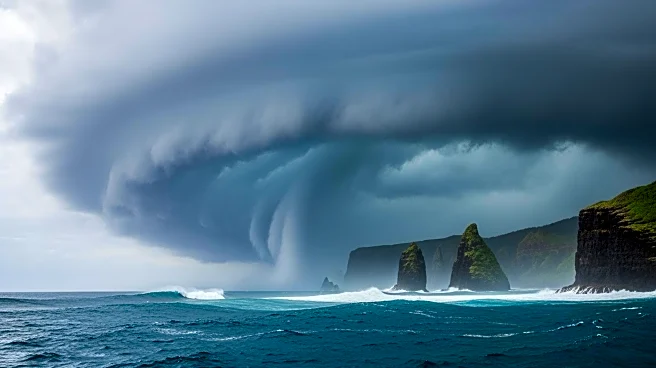What's Happening?
Hurricane Melissa, a Category 5 storm, is nearing Jamaica with the potential to become the strongest storm in the island's recorded history. The hurricane is expected to make landfall with winds reaching
175 miles per hour, bringing life-threatening flooding and a devastating storm surge. Officials have ordered over a million people to evacuate, and many airports and schools have been closed in anticipation of the storm. The U.S. has evacuated about 1,000 people from Guantánamo Bay, Cuba, as the storm is expected to make a second landfall there. The hurricane has already caused significant damage in Haiti, where the U.N. food agency is concerned about food shortages.
Why It's Important?
The impact of Hurricane Melissa is significant due to its potential to cause widespread destruction in Jamaica and other Caribbean regions. The storm's intensity and slow movement across the Caribbean could lead to prolonged exposure to hurricane-force winds and heavy rainfall, exacerbating the risk of catastrophic flooding and landslides. This event highlights the increasing frequency and intensity of storms, which are often linked to climate change. The economic and humanitarian implications are severe, with potential disruptions to infrastructure, agriculture, and the displacement of large populations.
What's Next?
As Hurricane Melissa approaches, emergency services and government agencies in Jamaica and neighboring regions are on high alert. Evacuations and preparations are underway to mitigate the storm's impact. The international community may need to provide aid and support in the aftermath, particularly in areas like Haiti, which are already facing food insecurity. The storm's progression will be closely monitored, and further evacuations or emergency measures may be necessary depending on its path and intensity.










